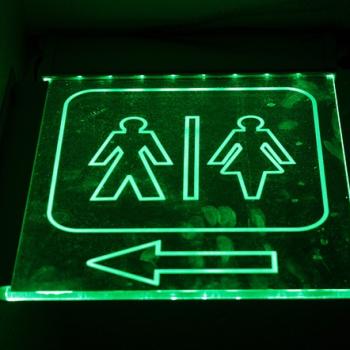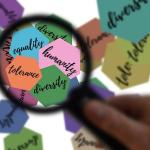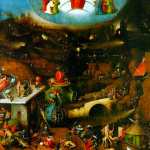
I don’t want it to be an election year, but it is anyway.
In case you’ve just joined me, I became a writer and somehow got big-fish-in-a-small-pond notorious in an election year. When I got this blog in 2016, I was registered to vote but I don’t think I was registered as a member of any party. I had always voted for Republican presidential candidates before, on the vague idea that they were in favor of unborn babies, and I tended to leave the rest of the ticket blank. I thought the pro-life movement genuinely wanted to save people from being killed. I thought that a critical mass of Americans wanted to live and let live, and this would keep the country from descending into chaos. I thought I was going to write prayers and meditations and put my own Appalachian twist on classic Catholic devotions like the Way of the Cross.
And then Donald Trump was nominated by the Republican party, and I thought I’d have to blog about politics for a couple of months before going back to meditations. And then we had an incident involving an erstwhile priest, an altar, and a naked baby corpse, and then the election went the way that it went, and life hasn’t been the same since– not for me, and not for anyone else in this country. All I could do was write about my consternation and disappointment in finding out how wrong I’d been. I’ve been writing ever since.
Now we’re doing it again.
I have learned an awful lot about the state of our country since 2016. I have learned a painful amount about the Catholic Church. I have learned the most shameful truths about the pro-life movement. I have learned far more than I ever, ever wanted to know about the way Catholicism as a culture interacts with civil authority here in the United States. I have learned about cults, conspiracy theories, and how hard it is for a group of terrified people to admit they’ve been duped by a con artist. I want to know none of this. I want to write prayers and meditations. But here I am. And it’s going to be an election year.
I don’t even know where to start.
There is nothing I can say to dissuade the people who are still clinging to the financially embarrassed rapist in his ugly Florida hotel. I don’t have much hope for my neighbors with DeSantis signs either. But to anyone who’s still listening, I offer the following suggestions.
First of all, don’t mix up commentary and news. It doesn’t make you smart and edgy to ignore journalism and read or watch only people editorializing on news. You should look at regular, ordinary, vanilla journalism and read the story with a critical eye, making sure you get the relevant information about who was definitely doing what. THEN you can go back and read commentators like me, interpreting what happened and saying why we think it’s important. What happened and someone’s opinion on why what happened is important are two different things. I’m not a journalist and neither is EWTN. Look at journalism first.
Secondly, remember that it’s usually perfectly legal to lie. You can get taken to civil court if your lies hurt someone enough, but if you’re not under oath you can lie all you want and nobody’s going to stop you. Politicians and the people desperate to get them into power can lie in ads, they can lie in speeches, they can lie in off-the-cuff remarks when they talk to reporters. They can lie in newsletters and editorials. They can lie when they give a speech to Congress. But once they’re under oath– if they’re testifying at a trial or if they’ve been sworn in to testify somewhere else– THEN there are severe penalties for saying things that can be proven untrue. That means that if a person makes a claim in front of their audience but says something very different in testimony at trial or on an official court document, you can bet that the court testimony is true and the speech is a lie. This isn’t a trick I made up, it’s a trick that Professor Heather Cox Richardson mentioned in several of her online lectures lately, so I started using it myself when I sort through the claims politicians make. It’s not failed me yet. If you don’t know who to believe, believe the person who could go to jail if they don’t tell the truth.
Third, you have to accept that Catholics are NOT a persecuted minority in America.
No, seriously, we aren’t. There was a time when we were, but we’re not now. Catholics make up about 23% of the United States population, but 100% of the current presidents, 66.66% of the Supreme Court, 27% of the Senate and 28% of the House. Being Catholic does not make you code as a scary foreigner in America at this point in history, it makes you code as a run-of-the-mill Christian. Nobody’s trying to stop us from going to Mass. Protestant children don’t lean on the Catholic school fence and scream “FISH-EATERS” like they did when my mother was a child. The cops are not prowling around Catholic neighborhoods to beat up loiterers. Nobody writes “No Irish need apply” on their job advertisements anymore. If a politician is telling you you’re in danger because you are Catholic and you need him to protect you from persecution, he is not a serious person and he’s just lying to rile you up. In fact, I would go so far as to say that if anybody says “you’re persecuted because of XYZ and you need me in office to keep you safe,” you ought to be very suspicious.
Fourth: it’s perfectly normal to get angry during an election campaign. It’s normal to get into arguments and for the arguments to get heated. In fact, it’s to be expected that people on opposite sides of a political campaign will hate each other’s guts. But if a politician starts referring to somebody as vermin, or insects, or germs, or an infestation, that’s when we’ve crossed a line. If you hear a certain race or class of human being described as a plague, a cancer, rats, blood poisoning, or other language like that, that’s genocidal language. It’s dangerous and evil. A person who uses it has nothing useful to say and they d0 not have good ideas. They should not be holding office.
Those are some pointers to keep in mind, as the chaos unfolds this year.
And we’ll just have to see what happens next.
Mary Pezzulo is the author of Meditations on the Way of the Cross, The Sorrows and Joys of Mary, and Stumbling into Grace: How We Meet God in Tiny Works of Mercy.

















